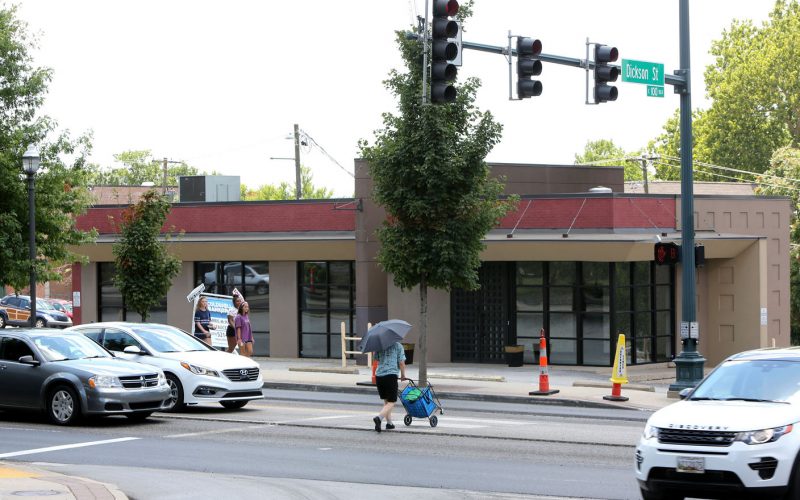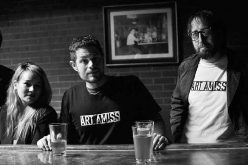
NWA Democrat-Gazette/DAVID GOTTSCHALK The building at 241 College Avenue Thursday, July 13, 2017, in Fayetteville. The property recently housed Jerry’s Restaurant and Dead Swanky, a hair salon. St. Paul’s Episcopal Church is looking for a tenant after Starbucks and two local buisesses backed out on leasing it.
Bill Bowden
bbowden@nwadg.com
From Dead Swanky to a house of prayer.
That’s the metamorphosis the Rev. Lowell Grisham would like to see for a lot that St. Paul’s Episcopal Church owns at the gateway to the Dickson Street entertainment district.
But that’s not in the plan, at least not now. The church needs to make money by leasing a 2,112-square-foot building on that lot at the southwest corner of Dickson Street and College Avenue in Fayetteville.
What does go into that building has reignited a conversation about local versus chain businesses in the gentrifying entertainment district.
For many years, the building housed a diner called Jerry’s Restaurant. Most recently, it was home to Dead Swanky, a hair salon that leased the spot from 2005 until six weeks ago, when the salon moved to a building on Trenton Boulevard.
Three businesses wanted to lease the former Dead Swanky spot. But all of those deals fell through, and the church has listed the property with a real estate agent to find a tenant, says Grisham, who is the rector at St. Paul’s.
One of the deals that fell through was with Starbucks, which decided there wasn’t enough room for a drive-through lane behind the building, says Grisham. He wouldn’t name the two local businesses that had looked at the location but backed out on leasing it.
Arkansas Democrat-Gazette/FILE PHOTO
Jerry’s Restaurant November 19, 2000 in Fayetteville.
Misty Ozturk, the owner of Dead Swanky, says she can’t see a Starbucks on that corner.
“I told the church ‘That is not a local downtown vibe,’” says Ozturk. “We have enough Starbucks happening in this city.”
“There are some people I know who were not pleased that a national chain was going to be on that corner,” says Steve Clark, president of the Fayetteville Chamber of Commerce. “That’s one of those deals that the market will dictate what the answer will be. That’s the changing nature of our community.”
Grisham says he likes the idea of a local business going into the space, but the decision is up to the church’s board.
“I know we had to balance the desire for a local business with the highest and best use, being to underwrite ministry through income,” he says.
“If I had my preference, I would like to have a house of prayer on that corner, but that would take a pretty big investment.”







